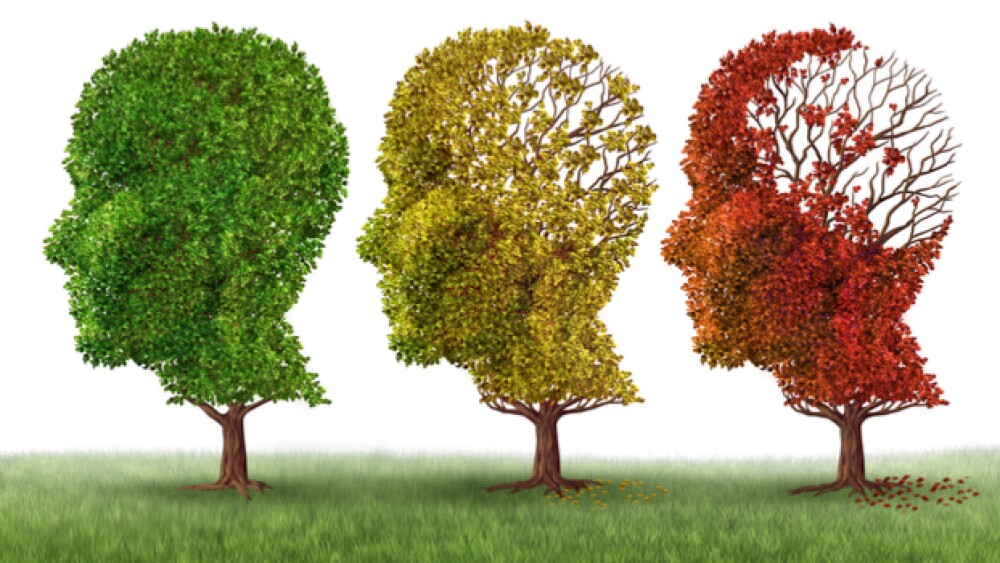Within the non-medical community, there is a tendency to just refer to dementia and Alzheimer’s interchangeably, but the Alzheimer’s Disease-Related Dementias Summit 2019 emphasized that physicians need to make the distinction for best patient care.
All cases of Alzheimer’s are dementia. However, not all cases of dementia are Alzheimer’s. Within the non-medical community, there is a tendency to just refer to dementia and Alzheimer’s interchangeably, but a summit held by the National Institute Of Neurological Disorders And Stroke, the Alzheimer’s Disease-Related Dementias Summit 2019, emphasized that physicians need to make the distinction for best patient care.
Aside from Alzheimer’s disease, other common forms of dementia include vascular disease such as stroke, Lewy body disease, which is a type of Parkinson’s disease, and frontotemporal lobe dementia, which typically affects a different section of the brain than Alzheimer’s, but has similar, but different symptoms. Frontotemporal dementia also tends to occur at younger ages than Alzheimer’s, often between the ages of 40 and 45.
Julie Schneider, a professor at the Rush Alzheimer’s Disease Center in Chicago was the scientific chair of the NIH summit. Schneider told NPR, “There’s a host of things that can cause loss of cognitive function.” But when Schneider was training in medicine in the 1980s and 1990s, “We were taught that almost all dementia is Alzheimer’s disease.”
Alzheimer’s is responsible for somewhere between 60 and 80 percent of dementia cases. But vascular diseases, such as stroke or damage to the blood vessels account for up to 10 percent of dementia cases, Lewy body disease makes up another 10 percent, and frontotemporal lobar degeneration is responsible for less than 10 percent.
Schneider added, “We still believe that Alzheimer’s is important. But these other pathologies are also important.”
Frontotemporal degeneration, according to Walter Koroshetz, director of the NINDS, has a distinct appearance. “Those folks can oftentimes be seen as peculiar but not demented,” he told NPR. “But they can be severely impaired.” Another name for frontotemporal dementia (FTD) is Pick’s disease.
According to the Mayo Clinic, patients with frontotemporal dementia have dramatic changes in their personality and often become “socially inappropriate, impulsive or emotionally indifferent, while others lose the ability to use language.” It is also often misdiagnosed as a psychiatric issue or as Alzheimer’s disease. Most common symptoms, which vary depending on the specific area of the brain affected, including increasingly inappropriate behavior, loss of empathy and other interpersonal skills, lack of judgement and inhibition, apathy, a decline in personal hygiene, changes in eating habits, usually marked by overeating, eating inedible objects, and a lack of awareness of the behavior.
As the name suggests, frontotemporal lobe dementia is caused by shrinkage of the frontotemporal lobes.
Lewy body disease is likely more similar in mechanism to Alzheimer’s disease. For the most part, Alzheimer’s is marked by an accumulation of a specific type of protein called beta-amyloid plaques and tangles that are involved in neuroinflammation. In Lewy body dementia, the plaques and tangles are caused by a different protein, Lewy bodies. Schneider told NPR, “It’s these little aggregates called Lewy bodies, which were first identified in the brains of people with Parkinson’s disease.”
She notes, “You’re going to be more rapidly declining. You might have more motor problems, more falls, gate changes, sleep problems, hallucinations.”
Not only is the distinction useful for knowing what to expect, but the few medications approved to treat Alzheimer’s aren’t effective for treating these other types of dementia. Of course, they’re also not that great at treating Alzheimer’s, and since not all dementias are caused by a single disease, a physician might prescribe one of the available drugs, such as Aricept, regardless.
And then there are strokes or similar damage to the blood vessels in the brain.
Roderick Corriveau, program director at the NINDS, told NPR, “One-third of the people who have strokes go on to have dementia. Preventing strokes is about preventing damage to the brain.”
And while other types of dementias aren’t exactly preventable by lifestyle changes, he notes that patients who have had one stroke can typically avoid another by taking blood thinners and controlling their blood pressure.





